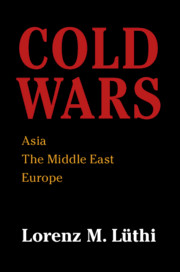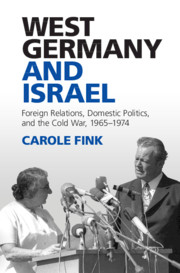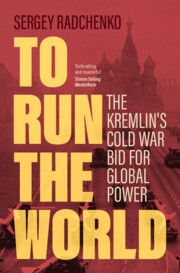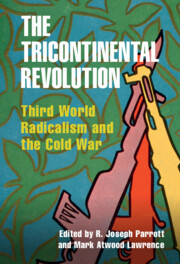Cold Wars
What was the Cold War that shook world politics for the second half of the twentieth century? Standard narratives focus on Soviet-American rivalry as if the superpowers were the exclusive driving forces of the international system. Lorenz M. Lüthi offers a radically different account, restoring agency to regional powers in Asia, the Middle East and Europe and revealing how regional and national developments shaped the course of the global Cold War. Despite their elevated position in 1945, the United States, Soviet Union and United Kingdom quickly realized that their political, economic, and military power had surprisingly tight limits given the challenges of decolonization, Asian-African internationalism, pan-Arabism, pan-Islamism, Arab–Israeli antagonism, and European economic developments. A series of Cold Wars ebbed and flowed as the three world regions underwent structural changes that weakened or even severed their links to the global ideological clash, leaving the superpower Cold War as the only major conflict that remained by the 1980s.
- Proposes a radical reinterpretation of the Cold War from the perspective of middle and smaller powers in Asia, the Middle East, and Europe
- Features new archival sources from two dozen archives in four different continents
- Analyses long-term economic, intellectual, and religious developments in multiple world regions to help us to comprehend the complexities of current times
Reviews & endorsements
‘Epic in scope and daring in its intellectual ambition, Cold Wars forces us to rethink our conventional wisdom about the international history of the past hundred years. By taking a regional approach, more horizontal than vertical, Lorenz M. Lüthi reveals the inner workings of the Cold War system.' Andrew Preston, author of American Foreign Relations: A Very Short Introduction
‘An entirely new perspective on the Cold War as a global phenomenon, emphasizing regional and local contexts, and how the Superpower Cold War interacted with other prominent narratives. Lüthi's book is a must read for those who seek to understand the globalization of Cold War processes and the hybridizations that emerged outside of the Superpowers themselves.' O.A. Westad, author of The Cold War: A World History
‘With the support of heroic efforts to engage in extensive, multilingual and multi-archival research, Lüthi has written a book, the first of its kind, that convincingly demonstrates why and how the Cold War was indeed global. This volume not only adds to the existing scholarship of the Cold War but also, and more importantly, significantly broadens and deepens the underlying agenda of Cold War studies in both academic and intellectual senses.' Chen Jian, author of Mao's China and the Cold War
‘Lüthi pushes the boundaries of the new global cold war historiography. Asia, the Middle East, and Europe all mattered, and not just because the superpowers intervened there. Decolonization, the rivalry of middle powers, non-alignment, and pan-Islamism are all given their due. A singular achievement.' Robert Vitalis, author of White World Order, Black Power Politics: The Birth of American International Relations
‘This book should command the attention of all Cold War historians. It is a book of prodigious research and immense erudition.’ Melvyn P. Leffler, Journal of Cold War Studies
‘The work is incredibly detailed …’ Elizabeth Banks, The Russian Review
‘For anyone interested in learning about the state of scholarship in Cold War studies, Lüthi’s new book is a timely read … Clearly written for non-expert and scholarly audiences alike, this book would be an excellent addition to the reading list for an upper-level undergraduate course on Cold War history. Scholars of international studies and world history will be greatly interested in it too. Highly recommended.’ X. Fan, Choice Magazine
Product details
April 2020Hardback
9781108418331
784 pages
235 × 157 × 43 mm
1.19kg
10 maps
Available
Table of Contents
- Introduction
- 1. From high imperialism to Cold War division
- Part I. Elusive Unities: Introduction to chapters 2 to 4
- 2. The United Kingdom and the Arab League
- 3. The Soviet Union and the socialist camp
- 4. The United States and the free world
- Part II. Asia: Introduction to chapters 5 to 7
- 5. China
- 6. Vietnam
- 7. India
- Part III. The Middle East: Introduction to chapters 8 to 10
- 8. Arab-Israeli relations, 1948–64
- 9. Arab-Israeli relations, 1964–75
- 10. The Palestinians
- Part IV. Alternative World Visions: Introduction to chapters 11 to 13
- 11. Asian-African internationalism
- 12. Non-alignment
- 13. Pan-Islamism
- Part V. Europe between the Superpowers: Introduction to chapters 14 to 16
- 14. Nuclear weapons
- 15. West European integration
- 16. The Council for Mutual Economic Assistance
- Part VI. European Détente: Introduction to chapters 17 to 19
- 17. Germany
- 18. The Conference on Security and Cooperation in Europe
- 19. The Vatican
- Part VII. The End of the Regional Cold Wars: Introduction to chapters 20 to 22
- 20. The Middle East
- 21. Asia
- 22. Europe
- 23. The end of the Superpower Cold War
- 24. Legacies of the Cold War
- Conclusion.





